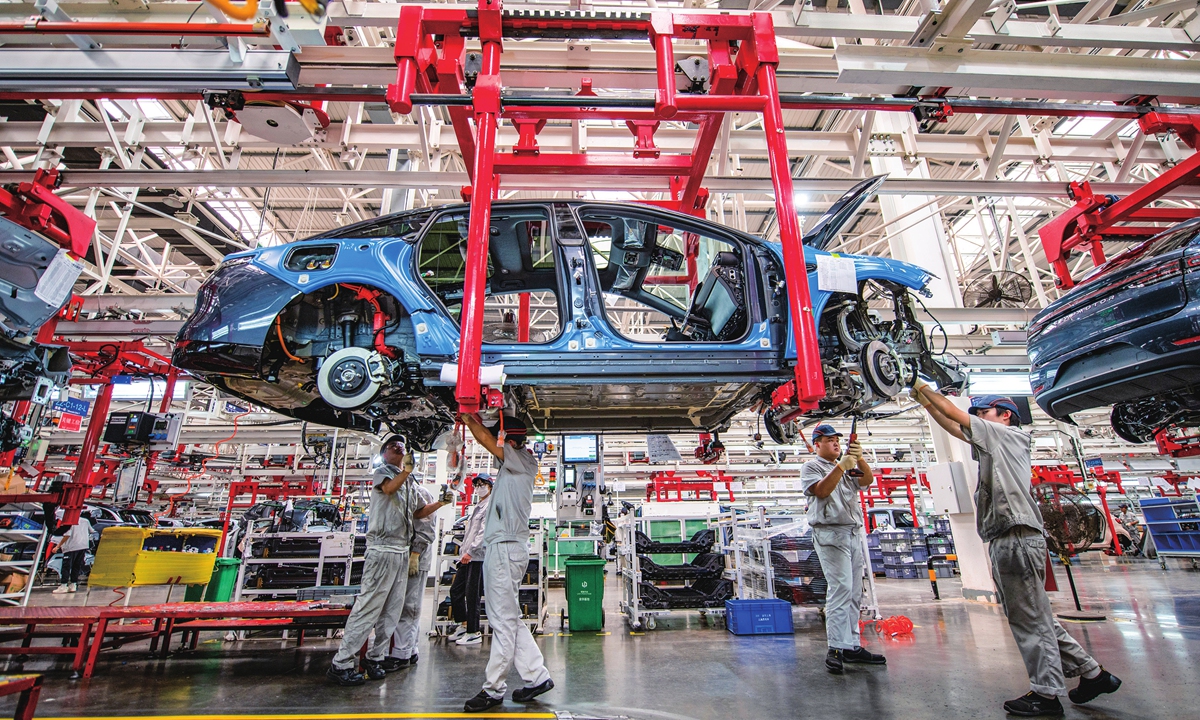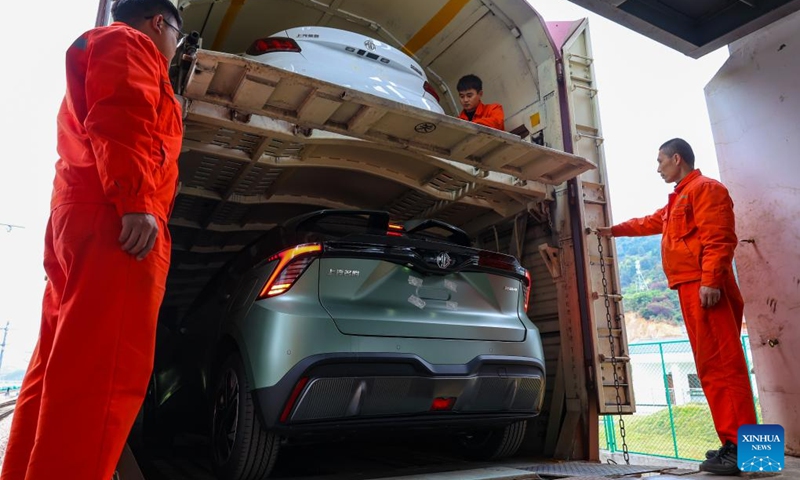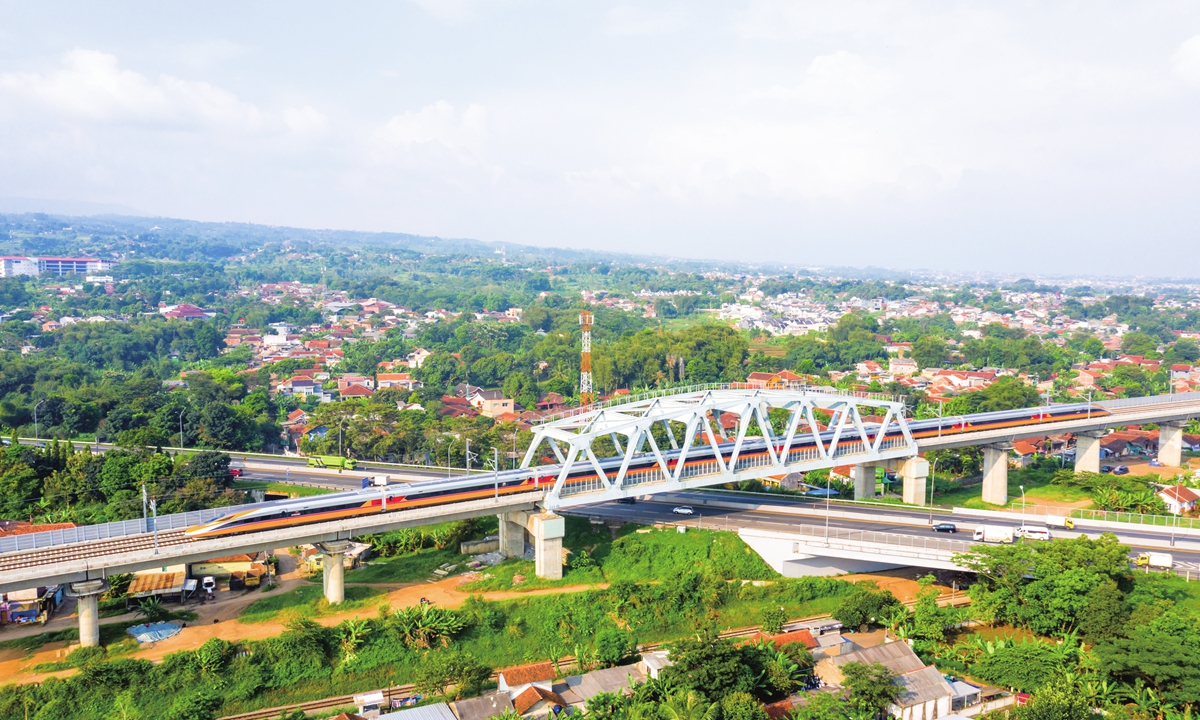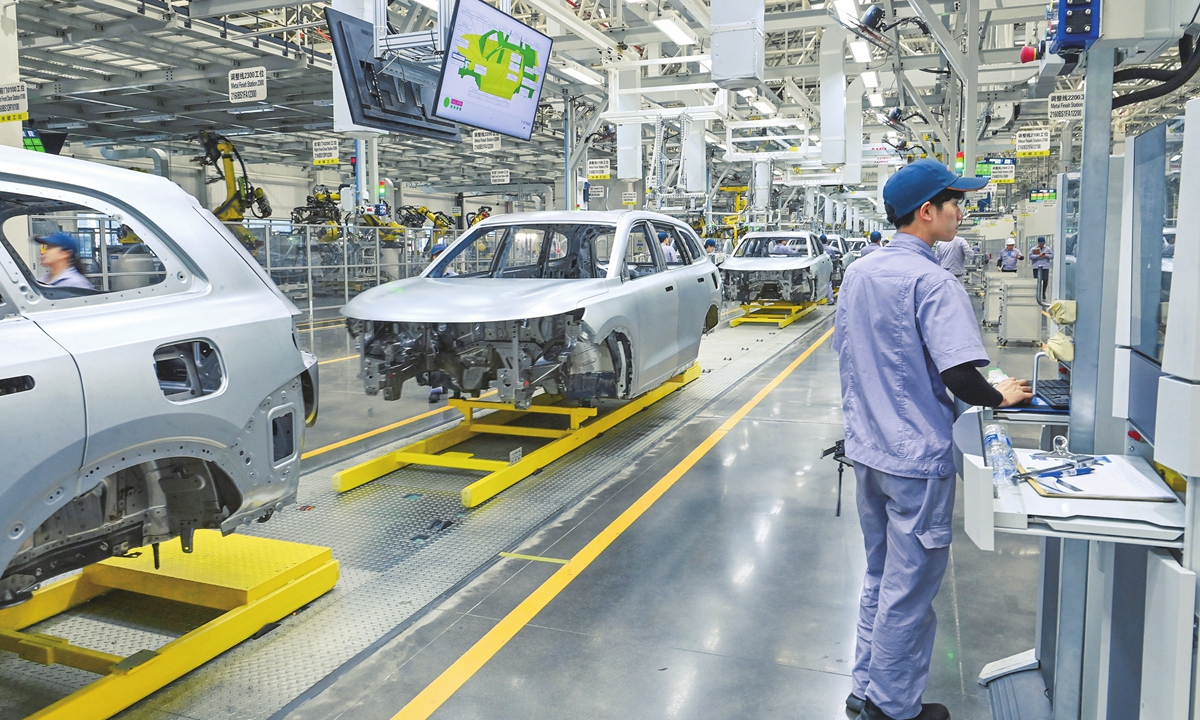US accusation of 'overcapacity' in China a discourse trap to contain green industries: expert
China's passenger NEV penetration rate exceeds that for fuel vehicles for first time

Workers assemble a new-energy vehicle (NEV) in a factory in Jinhua, East China's Zhejiang Province on October 25, 2023. In the first nine months of this year, China exported 825,000 NEVs, data from the China Association of Automobile Manufacturers shows. Photo: VCG
The penetration rate of China's passenger new-energy vehicles (NEVs) exceeded 50 percent in the first half of April, as reported by China Central Television (CCTV) on Sunday, outperforming traditional fuel passenger vehicles and marking the rapid development of the NEV sector in China amid full market competition.
The US accusation of "overcapacity" in China is a discourse trap that aims to contain China's development of green industries amid its growing international competitiveness, Chinese observers said, stressing that the increasing self-isolation of the US will disrupt global automobile industrial and supply chains and eventually harm the interests of American consumers.
From April 1 to 14, retail sales of passenger NEVs stood at 260,000 units, up 32 percent year-on-year, according to data from the China Passenger Car Association.
It means that the penetration rate of passenger NEVs reached 50.39 percent, state broadcaster CCTV reported on Sunday.
The latest data underscored the rapid development of China's NEV sector amid market competition, with more consumers choosing to buy NEVs due to their lower prices, better experience and other factors, Wu Shuocheng, a veteran automobile analyst, told the Global Times on Sunday.
"There is no such thing as 'overcapacity' in China's NEV sector, although the supply of cars sometimes outpaces demand due to market fluctuations. The production capacity [of NEVs] that could meet consumers' upgrading demand remains insufficient," Wu said.
While the US has kept hyping the "overcapacity" issue, China has opened its door wider and wider. In 2019, US carmaker Tesla built its first Gigafactory outside the US in Shanghai, which gave a boost to the development of the NEV industry amid competition.
Tesla on Sunday cut the price of its Model 3 from 245,900 yuan ($34,630) to 231,900 yuan, and now offers the Model Y from 249,900 yuan onward, compared with 263,900 yuan previously, according to the company's China website.
Li Yong, a senior research fellow at the China Association of International Trade, attributed the advantages of China's NEV industry to technological accumulation, globally competitive industrial clusters and agile supply chains.
"Compared with some countries that have failed to develop industrial chains or key technologies during the development of the NEV industry, China has achieved a globally leading position in innovation, technology application and interior design, enabling Chinese NEVs to meet the demand of international consumers," Li told the Global Times on Sunday.
The US hyping of China's "overcapacity" is a discourse trap that aims to curb China's NEV exports and contain China's NEV development, Li said. He said that the ratio of exports to production for Chinese NEVs is far lower than those of Germany, Japan and South Korea.
"If these countries haven't seen overcapacity, the US shouldn't put that label on China," he said.
According to a forecast by the International Energy Agency in 2023, global sales of electric vehicles are set to reach 45 million in 2030. That is about 4.5 times the sales recorded in 2022, underscoring that the global supply of new-energy products is not in excess but is actually insufficient.
"By resorting to protectionist measures, Washington's resistance to competition for the nurturing of the backward local industry will harm the technological advances by the US and disrupt global industrial and supply chains," Li said.
China's Foreign Ministry on Friday blasted the US accusation of "overcapacity" in China as "economic coercion and bullying."
"Those who use overcapacity to justify protectionism have nothing to gain and will only destabilize global industrial and supply chains, harm emerging sectors and hinder the world's climate response and green transition," the ministry said.



